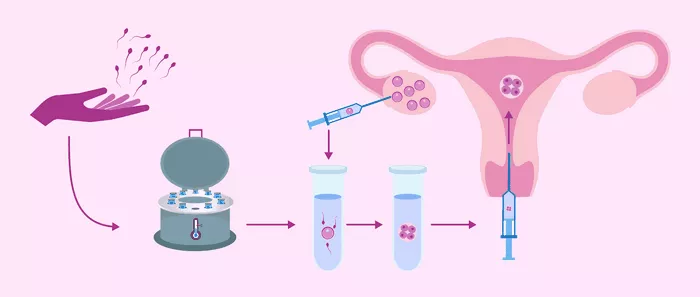Since the rollout of State-funded fertility treatment in September 2023, Ireland has seen a significant rise in the number of couples availing themselves of free IVF services. Initially, around 100 couples per month were referred for IVF under the new scheme, but by the latter part of 2024, this number had increased by 50%, with approximately 150 couples referred monthly.
This increase in demand is evident across the six fertility hubs established by the Health Service Executive (HSE), which are currently receiving up to 550 referrals per month. Dr. Cliona Murphy, Clinical Director of the HSE’s National Women’s and Infants Health Programme, expressed that while there was initially a “slow build-up” in demand, the numbers have steadily risen. She emphasized that once people enter the system, they are generally satisfied with the services, noting the high success rates being reported, with up to 40% success rates for IVF, depending on factors such as age.
However, while the first phase of the scheme has been broadly welcomed, some challenges persist. Caitríona Fitzpatrick, Chairperson of the National Infertility Support and Information Group, pointed out that, despite the perception of “free IVF,” only a small percentage of those in need are actually able to access the treatment. Estimates suggest that less than 10% of individuals seeking treatment are able to avail themselves of the state-funded service. Additionally, concerns have been raised regarding the slow pace of implementation and the restrictive nature of the program, with no clear timelines for expansion.
Concerns and Calls for Expansion
Fitzpatrick called for the scheme to be expanded and more transparent, highlighting the lack of regulatory oversight and the need for comprehensive data on who is seeking fertility treatments, their age, and geographic location. She also stressed the importance of providing support for people dealing with secondary infertility, which is not currently covered by the scheme, and for including donor conception as a priority in the public IVF service, especially for single people who wish to start a family.
Furthermore, Dr. Murphy noted the importance of educating men about how lifestyle factors, such as smoking, steroid use, and occupation, can affect fertility, and revealed that the HSE is looking into better support and pathways for male patients.
The Path Forward
As Ireland aims to improve access to fertility treatments, the country looks to global counterparts, particularly the UK, for guidance on establishing sustainable, high-quality services. However, significant hurdles remain, particularly in terms of expanding access to IVF and addressing gaps in public education and support services.
For now, waiting times for initial appointments at regional fertility hubs remain high, with patients typically waiting 10-11 weeks for an initial consultation and around six months for a consultation with a specialist. This ongoing delay contributes to the stress many couples face as they navigate their fertility journey.
As the scheme continues to evolve, it is clear that broader societal conversations about fertility struggles, along with increased support and education, will play a vital role in shaping the future of reproductive healthcare in Ireland. Fitzpatrick envisions a future where young people are educated about fertility issues from an earlier age, creating a more open dialogue about the challenges some individuals face in starting a family.
Related topics:
How to Treat Myoma While Pregnant?
Ethical Concerns Over IVF: Moral Responsibilities and the Sanctity of Life
Embryo Testing and PGD: A Breakthrough in Reducing Miscarriages and Improving IVF Outcomes

























